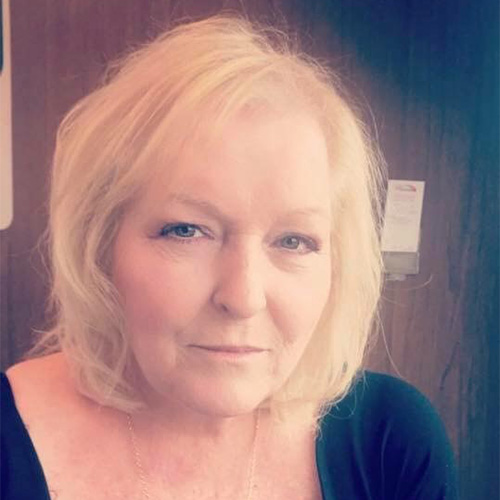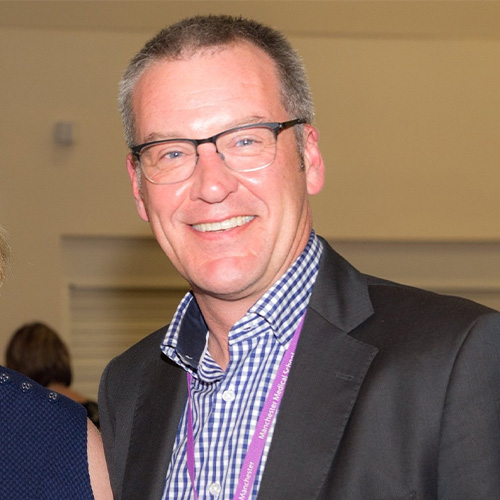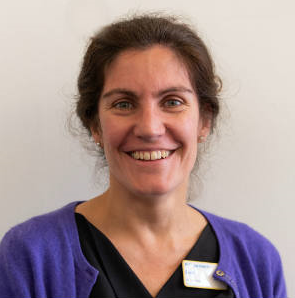Putting personal experience first: The Impact of Covid-19
 Kay Smith
Kay Smith
Author and Patient
• end of life care: a personal journey
• the impact of Covid-19: shielding, isolation and anxiety
• ensuring engaged, informed individuals and carers
• improving information about what to expect at the end of life
Kay started the day by sharing the hardship she has been going through due to Covid-19. Kay has been shielding since February 2020 due to a number of different health conditions, the hardest of which has been not seeing her daughters and her grandchildren. Kay supports dignity in dying and ended her presentation by saying – “I know as Drs & Nurses we all fight to preserve life, but there is a time when you have to let go”
End of Life Care & Covid-19
 Dr Iain Lawrie
Dr Iain Lawrie
Consultant in Palliative Medicine
Manchester University NHS Foundation Trust
Former President
Association for Palliative Medicine
• current issues and challenges in ensuring high quality end of life care during the Covid-19 pandemic
• making difficult decisions around ceilings of treatment and where possible ensuring timely honest conversations about the person’s preferences and priorities, including advance decisions to refuse treatment
• managing Covid-19 symptoms for patients in the community, including at the end of life
• improving care for dying adults in the last days of life: working with hospitals, hospices, care homes and in the community
Iain started his presentation by explaining how everything changed when covid-19 first hit; “patients were coming in and rapidly deteriorating, they were dying within 12-24 hours…There was a sense of uncertainty and a loss of control”
Iain went on to talk about how important it was to all come together - “Local and national CCG’s, Trusts, GP practices, hospices and homes all needed to forget our differences and come together, there was a huge amount of work to do to try and manage the situation”
Iain explained that a worrying thing that happened last year was missing patients - “When planning services we had to take into account that patients without Covid did not want to come into hospital or go to their GP”
Iain went on to talk about how end of life has changed in the past year - “Normally at the end of someone’s life we would get all the family members in but all that has gone now and is still ongoing, the psychological impact of this is huge”
Iain finished his presentation by asking what are our challenges now? “supporting patients, families and staff through more tough times” “providing good end of life care” “supporting treating and helping manage the missing patients”
“I wanted to ask about any benefits which have come out of Covid-19 and I think a big one is communication – developing staffs skills and confidence in discussing difficult topics”
“I think another positive thing is all coming together – Bringing Primary care and secondary care together has been a huge thing over the past year and long may this continue”
Iain concluded by saying - “Maybe we will return to a better normal?”
Supporting people dying at home during Covid-19
 Julie Pearce
Julie Pearce
Chief Nurse and Executive Director of Caring Services

with Dr Sarah Holmes
Medical Director, Service Transformation and Innovation
Marie Curie
• supporting people to care for dying relatives at home during Covid-19
• managing medicines and supportive care
• avoiding hospital admission
• emerging themes and what is helping
- Julie Pearce Biography 0.07 MBDOCXfile
- Dr Sarah Holmes Biography 0.12 MBDOCXfile
- Presentation Slides 6.42 MBPPTXfile
Julie started the presentation by talking about supporting people dying at home during Covid-19. “During the pandemic last year the media interest was mainly on hospital deaths” “There was an unknown silent crisis - people were dying at home without the support from services they needed”
Julie went on to explain what is important to people at the end of life – “What’s important at this time is their families & relationships and human contact – this was really impacted by the crisis”
On a survey by Marie Curie they found that “76% of families felt they were not offered all the care and support they needed during this time”
Sarah continued the presentation and opened by saying – “During the first few weeks of the crisis hospice deaths fell below baseline levels. We believe due to visitor restrictions and fears of contracting covid-19 by families”
Sarah continued by discussing what had to be done during the crisis - “We needed to collaborate and find new ways of working and because of this boundaries blurred between services”
Looking forward Sarah went on to say – “We now have a wave of complicated grief due to people being unable to visit their loved ones at the end of life”
“Demand for end of life and palliative care is going to increase over the next 20 years as we are an ageing population”
Sarah finished the presentation by outlining their policy recommendations which included - “A whole system approach, Support for families and carers and more and better bereavement support”
